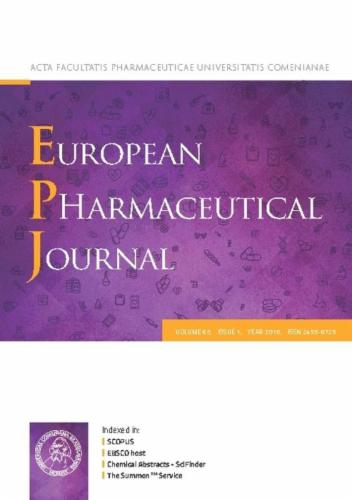Enhancing the photothermal properties of indocyanine green in melanoma spheroids via encapsulation in Span 80-containing lipid nanocapsules
IF 4.3
3区 医学
Q1 PHARMACOLOGY & PHARMACY
引用次数: 0
Abstract
Indocyanine green (ICG), a well-known photosensitiser, has shown potential in photothermal therapy (PTT) for cancer treatment, but its effectiveness is limited by poor skin penetration and rapid clearance. To address this, lipid nanocapsules (LNCs) were used as nanocarriers to enhance ICG's cellular uptake and photothermal (PT) performance in melanoma cells. Utilising our recently developed Span 80-modified LNCs (LNC100-S8) with high biocompatibility and enhanced cellular uptake in B16F10 melanoma cells, ICG was loaded into LNC100-S8 using the phase inversion temperature method. The results showed that ICG encapsulation at 4.5 mg/mL maintained small LNC sizes (95–105 nm). Moreover, the heating capacity of ICG in LNCs was approximately 1.5 times higher than free ICG, achieving temperature increases over 10 °C post-irradiation. In cell cancer monolayers, LNC100-S8 enhanced ICG uptake by 1.5 times compared to free ICG and reduced cell viability to 50 % following 808 nm laser irradiation. More promisingly, ICG-LNC100-S8 combined with laser irradiation significantly reduced three-dimensional B16F10 spheroids size up to 11 days post-treatment compared to free ICG. Overall, our findings validate LNC100-S8, as promising nanocarriers for enhancing ICG-based PTT, supporting their potential applications in vivo to treat melanoma and other skin cancers.

用含span80的脂质纳米胶囊封装吲哚菁绿增强黑素瘤球状体的光热特性。
吲哚菁绿(ICG)是一种著名的光敏剂,在癌症治疗的光热疗法(PTT)中已显示出潜力,但其有效性受到皮肤渗透性差和清除速度快的限制。为了解决这个问题,我们使用脂质纳米胶囊(LNCs)作为纳米载体来提高ICG在黑色素瘤细胞中的细胞吸收和光热(PT)性能。我们最近开发的Span 80改性LNC(LNC100-S8)具有很高的生物相容性,能增强B16F10黑色素瘤细胞对ICG的吸收。结果表明,4.5 毫克/毫升的 ICG 封装可保持 LNC 的尺寸(95-105 纳米)。此外,LNCs 中 ICG 的加热能力约为游离 ICG 的 1.5 倍,辐照后温度可升高 10°C 以上。在细胞癌单层中,与游离 ICG 相比,LNC100-S8 对 ICG 的吸收能力提高了 1.5 倍,在 808 纳米激光照射后,细胞存活率降低了 50%。更有希望的是,与游离 ICG 相比,ICG-LNC100-S8 与激光照射相结合可显著减少三维 B16F10 球形体的大小,处理后可维持 11 天。总之,我们的研究结果验证了 LNC100-S8 是增强基于 ICG 的 PTT 的有前途的纳米载体,支持其在体内治疗黑色素瘤和其他皮肤癌的潜在应用。
本文章由计算机程序翻译,如有差异,请以英文原文为准。
求助全文
约1分钟内获得全文
求助全文
来源期刊
CiteScore
9.60
自引率
2.20%
发文量
248
审稿时长
50 days
期刊介绍:
The journal publishes research articles, review articles and scientific commentaries on all aspects of the pharmaceutical sciences with emphasis on conceptual novelty and scientific quality. The Editors welcome articles in this multidisciplinary field, with a focus on topics relevant for drug discovery and development.
More specifically, the Journal publishes reports on medicinal chemistry, pharmacology, drug absorption and metabolism, pharmacokinetics and pharmacodynamics, pharmaceutical and biomedical analysis, drug delivery (including gene delivery), drug targeting, pharmaceutical technology, pharmaceutical biotechnology and clinical drug evaluation. The journal will typically not give priority to manuscripts focusing primarily on organic synthesis, natural products, adaptation of analytical approaches, or discussions pertaining to drug policy making.
Scientific commentaries and review articles are generally by invitation only or by consent of the Editors. Proceedings of scientific meetings may be published as special issues or supplements to the Journal.

 求助内容:
求助内容: 应助结果提醒方式:
应助结果提醒方式:


